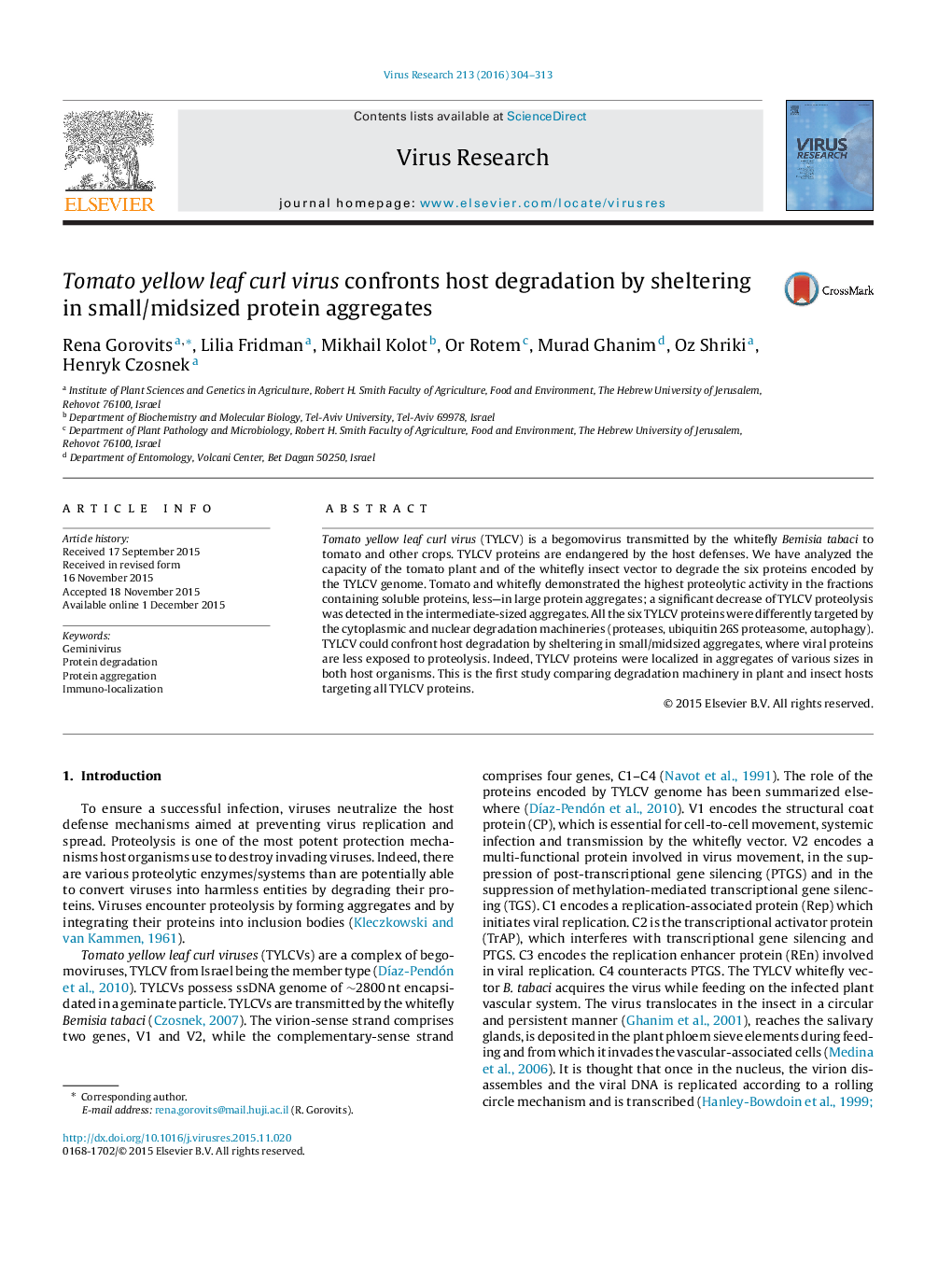| Article ID | Journal | Published Year | Pages | File Type |
|---|---|---|---|---|
| 3427924 | Virus Research | 2016 | 10 Pages |
•Plant and insect hosts degradation of purified viral proteins has been studied.•Tomatoes and whiteflies use comparable degradation mechanisms toward TYLCV proteins.•Highest proteolytic activities associated with soluble, but not aggregated proteins.•Viral proteins in the intermediate-sized aggregates were less exposed to degradation.
Tomato yellow leaf curl virus (TYLCV) is a begomovirus transmitted by the whitefly Bemisia tabaci to tomato and other crops. TYLCV proteins are endangered by the host defenses. We have analyzed the capacity of the tomato plant and of the whitefly insect vector to degrade the six proteins encoded by the TYLCV genome. Tomato and whitefly demonstrated the highest proteolytic activity in the fractions containing soluble proteins, less—in large protein aggregates; a significant decrease of TYLCV proteolysis was detected in the intermediate-sized aggregates. All the six TYLCV proteins were differently targeted by the cytoplasmic and nuclear degradation machineries (proteases, ubiquitin 26S proteasome, autophagy). TYLCV could confront host degradation by sheltering in small/midsized aggregates, where viral proteins are less exposed to proteolysis. Indeed, TYLCV proteins were localized in aggregates of various sizes in both host organisms. This is the first study comparing degradation machinery in plant and insect hosts targeting all TYLCV proteins.
